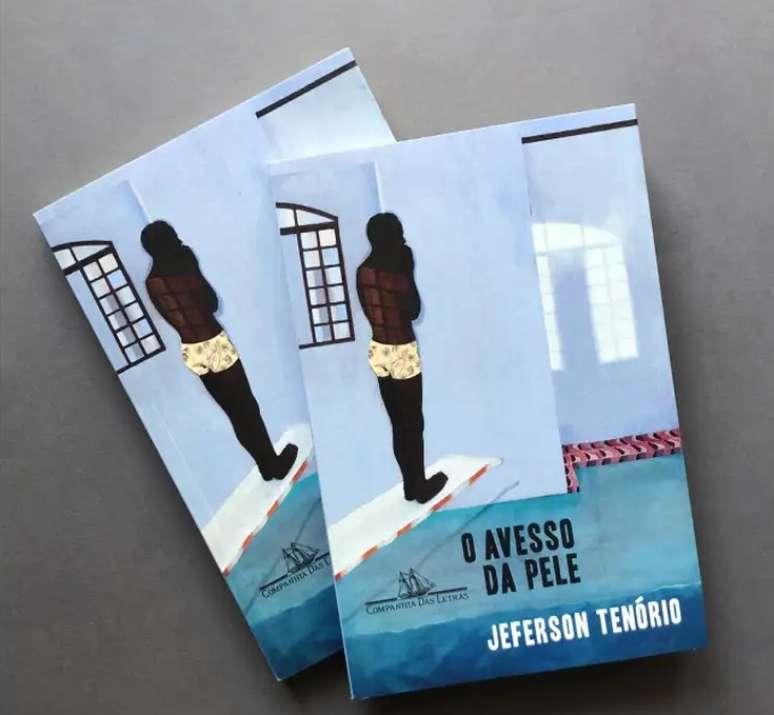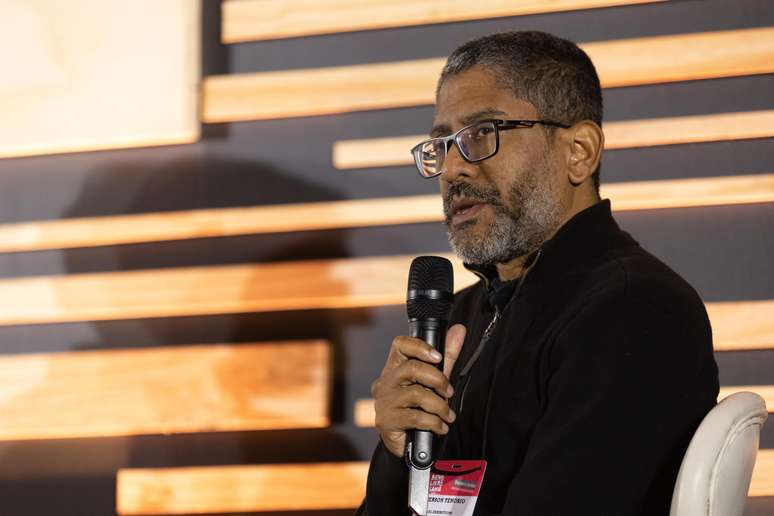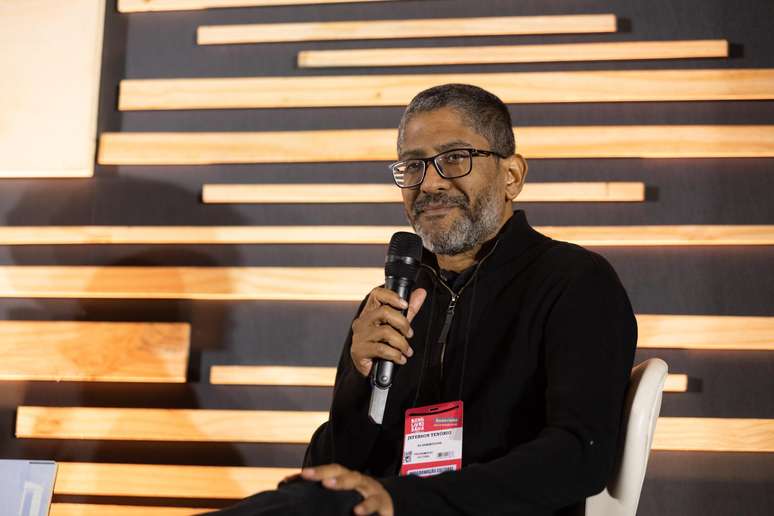Jeferson Tenório was subjected to persecution after the book was adopted in schools in Brazil
Summary
Writer Jeferson Tenório talks about the consequences of censorship of his book “O Avesso da Pele” and highlights the barriers that prevent access to the black population and how this affects the generation of new writers.
After the controversy regarding the censorship of the book The inside of the skinthe writer Jeferson Tenório has a clear explanation about the attacks directed at the work, winner of the 2021 Jabuti Prize In an interview with Earthclaims that complaints against the book, such as the one made by the director of a school in Santa Cruz do Sul, Rio Grande do Sul, are a reflection of political polarization and incitement to hatred against social minorities.
“We live in a moment that is the continuation, in fact, of a conservative wave. So, what I’ve noticed is that racism has always existed. Police violence against black people has always existed. But what happened now, in addition to violence, there is a sort of encouragement to this violence. There is talk of incitement to hatred towards these minorities and I think this has to do with the entire political process that we have experienced in recent years. “, points out.
In March this year, the educator published a video in which he claimed that the work contains “low-level vocabulary” for children under 18 and called for copies to be removed from the institution. The book was purchased in the same year by the Ministry of Education to integrate the National Program for Books and Teaching Materials (PNLD).
As a result, the work began to be adopted into secondary education in the country’s public schools. The title, which addresses racism, violence and grief based on a young black man whose father was murdered in a police attack, is required reading. for the university entrance exam at the Federal University of Rio Grande do Sul (UFRGS).
In addition to censorship in Santa Cruz do Sul, the book was also criticized in Goiás and Mato Grosso do Sul. Copies of the work were withdrawn from public school libraries on March 6, but with the court’s decision, copies began to be returned on the 24th.
Barriers come before censorship
As a black man and a writer, Tenório views the scenario with concern, but says that censorship should not scare and limit the work of other authors. However, he highlights the barriers that make it impossible to access the general black population and how this affects the generation of new writers.
“I think the barrier comes first. The barrier comes before you can live. Before you get to writing there are a series of barriers that affect the black population, which have to do with access to health, to education. I think when this black writer gets to this place of writing, when he has his basic needs met to be able to write, I think with all the history he’s had, he won’t be afraid to write,” he says.
Again according to him, the censorship aimed at a black writer is part of the discomfort of a society, a consequence, precisely, of what he highlights in The inside of the skin: structural racism.
“What worries me, in reality, is when there is a State that allows the censorship of books. And they don’t censor any book, any author. They are censoring black authors, a black body that thinks, that writes. This causes a sort of discomfort. So, I think the fear is not the fear of telling your experience, I think it’s the fear of walking down the street, of being approached by the police”, criticizes Jeferson Tenório, author of ‘O Avesso da Pele.
Attacks and threats
The attacks earlier this year were nothing new for Jeferson Tenório. Present at the Bahia Book Biennial, the author recalled a series of attacks suffered on social media because of The inside of the skin.
In 2021, before his first trip to the capital of Bahia to talk about the book at a private school, Tenório reported receiving threats and even having to file a police report.

“I went to visit a private school that had adopted the book and, before arriving, I started receiving death threats on social media. They said that if I came to talk about the book, I would have to flee Brazil, because I would be machine-gunned” , he said.
During the event’s programming, Tenório participated in a panel on censorship and freedom of expression, with the Bahian writer and professor Lívia Natália and the jurist and professor Conrado Hubner.
Encouragement to read
Given the impact of book censorship on education, the writer emphasizes the necessity and importance of books for students’ education and learning in the school environment. In view of greater access to reading, the writer advocates the implementation of a system of training readers that includes not only encouragement in schools and public libraries, but the holding of literary fairs and events throughout the country.

“I think that censorship is in this sense that it is prohibited, that it prevents students from accessing an important place, a place of education, a place of training for citizens. This is how I evaluate it. Censorship occurs because it prevents students from have access to a discussion like this,” he believes.
Tenório also focused on the progress of technology and the use of social networks in relation to the decline in the habit of reading among young people. In Brazil, more than 66% of students aged 15 to 16 said that the longest text they read during the school year was no more than ten pages. The data comes from a study by the Interdisciplinarity and Evidence in Educational Debate (Iede) research center in collaboration with Árvore, a gamified reading platform, based on the 2018 results of the International Student Assessment Program (Pisa).
“This is a moment of speed, this moment where we can’t pay attention for a long time. For example, TikTok has this quick video, this quick thing. But, on the other hand, I think young people read a lot. Maybe they don’t read what we want them to read. I think that a teenager who spends many hours on his cell phone doesn’t just look at pictures, he reads a lot of things,” he says.
Source: Terra
Rose James is a Gossipify movie and series reviewer known for her in-depth analysis and unique perspective on the latest releases. With a background in film studies, she provides engaging and informative reviews, and keeps readers up to date with industry trends and emerging talents.






